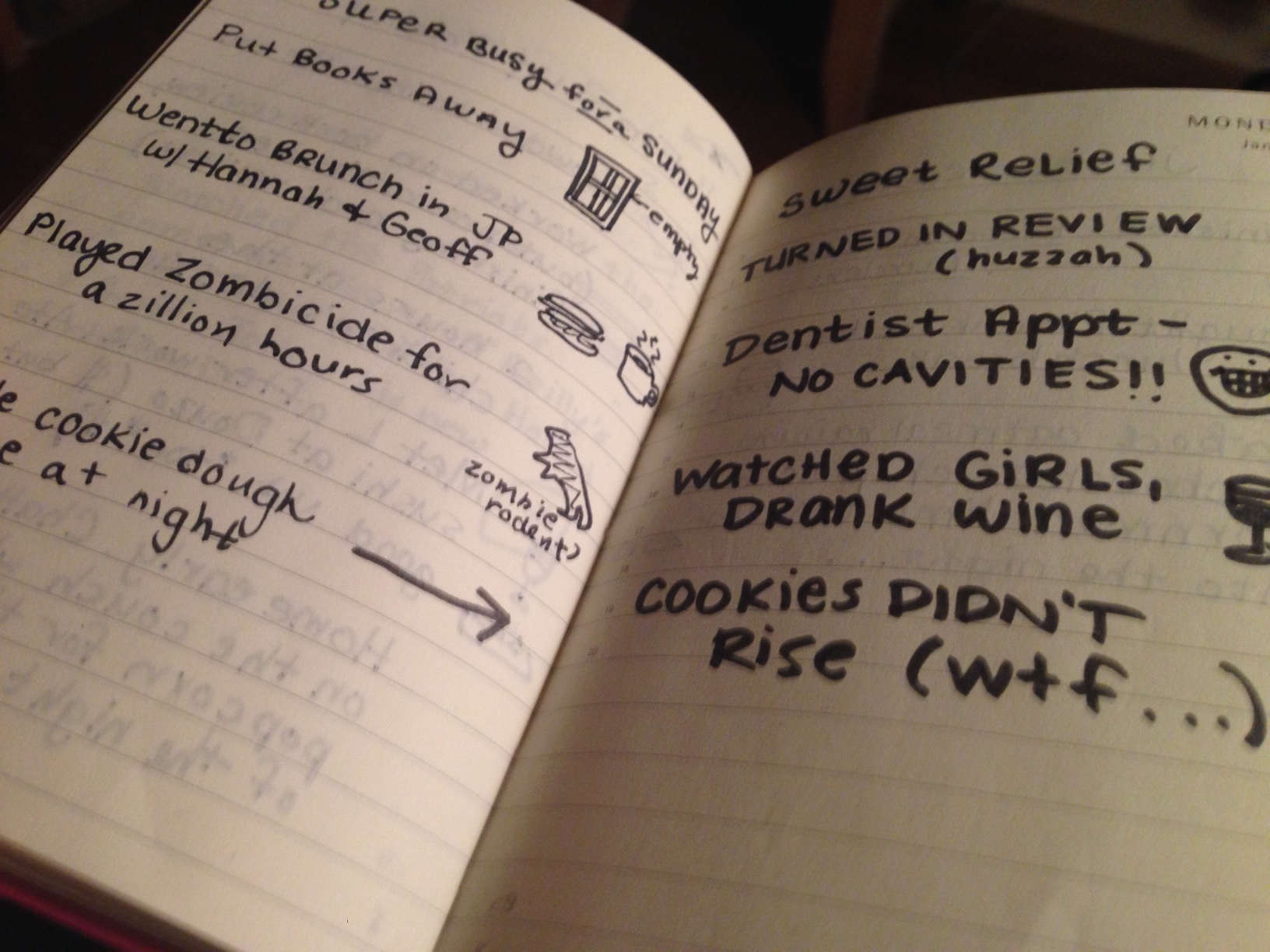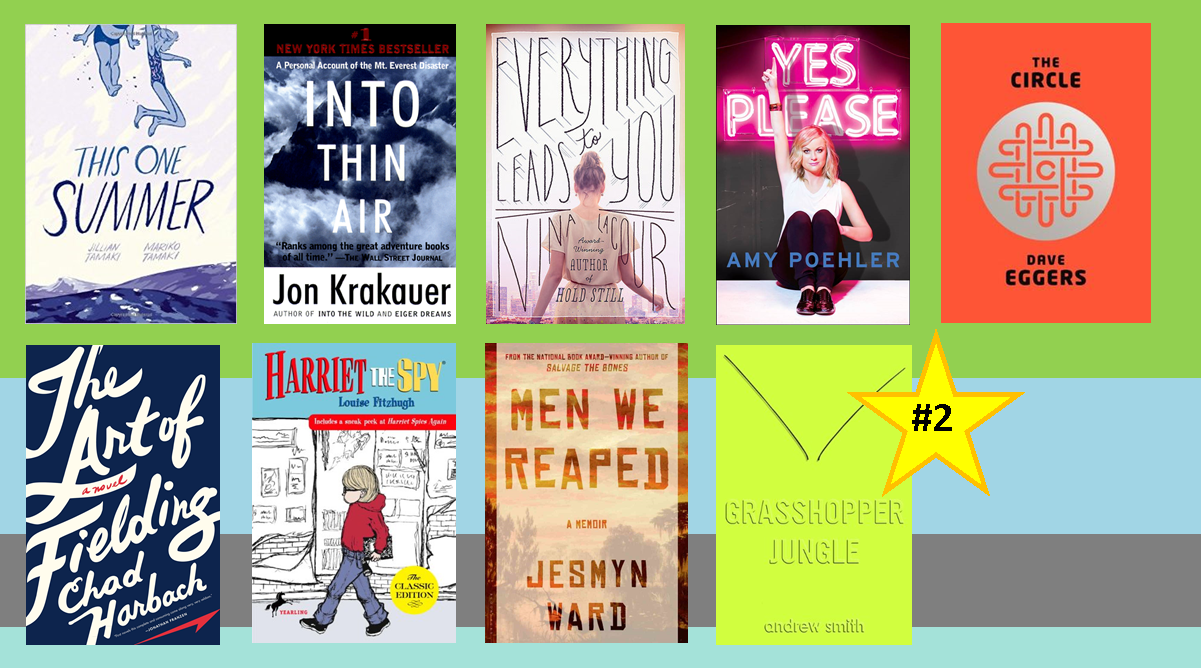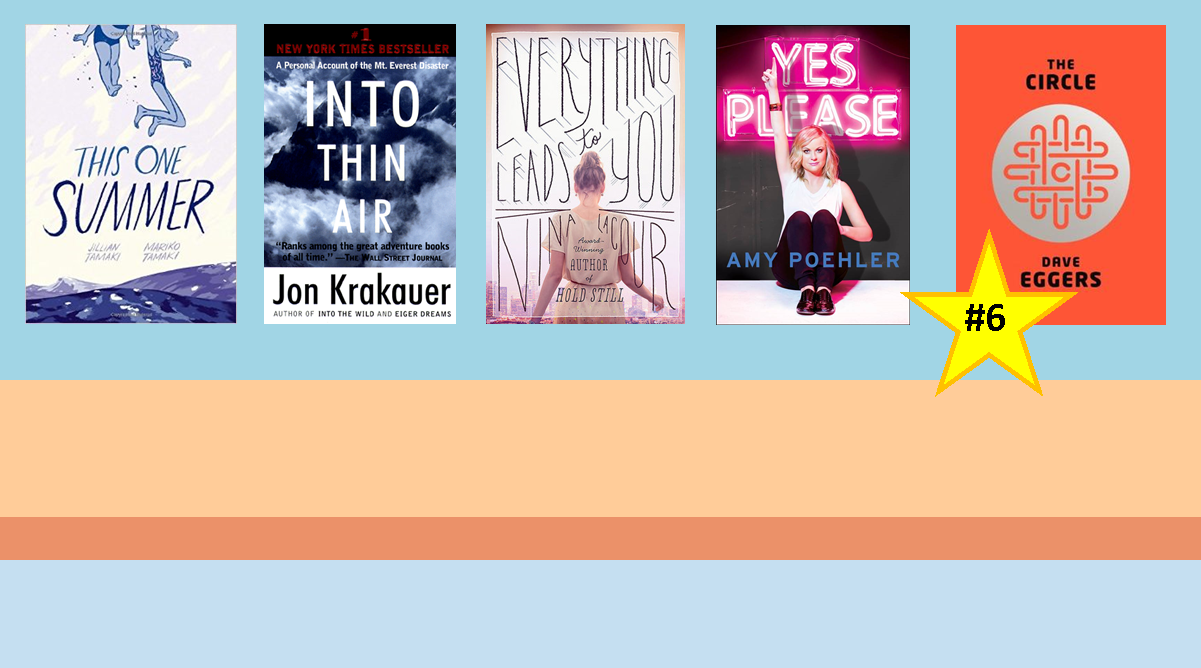
The Boy and I returned from our family vacation on January 3rd. We caught an early flight, so I spent most of the day napping and watching House Hunters. Not exactly seizing the new year. In fact, it is the 21st as I write this and am currently seizing very little. 2015 definitely didn’t start on the 1st – I was on vacation for heaven’s sake! I thought it would start after I met a post-vacation deadline, but then I couldn’t make the deadline and it’s really better I don’t talk about that. Then I threw a baby shower, and now that my immediate concerns have ended the month is halfway done. 2015 should be starting annnnnny minute now.
I’m not taking on any traditional New Year’s resolutions for 2015. No one little word (which really just reminds me of Skyrim, actually). No 30 before 30. Ignoring the chance to turn over a new leaf is a bit out of character, but I suspect that 2015 will be a bit of a wild ride. I’m sure I won’t be able to resist the siren song of self-improvement as the year moves on, so I’m bowing out of the NYR game in favor of whatever small goals I dream up for myself over the course of the year.
So I won’t be Resolving in 2015, but I won’t be sitting on the couch all year, either. Well, actually, I probably will be sitting on the couch all year, so never mind. Anyway, here’s what I will be up to in 2015.
Reading some YA nonfiction
Yes, I have returned yet again to the Cybils YA nonfiction committee, but after two years as a Round One judge I am trying my hand at Round Two! For the layman, this means that instead of reading a butt-ton of nonfiction books between October and December 31st, I waited for Round One to do their thing. Now, my first order of 2015 business is to read the seven nominees! Don’t worry, I’m not waiting to “settle in” with 2015 to get this one going; I’m a book and a half away from the finish line. Check back with the Cybils folks on Valentine’s Day to see which of the seven we select!
Examining my relationship with processed foods
I’m not going as far as to call this one a New Year’s Diet or anything, but I’m pretty much always on a never-ending quest to find Peace with Eating. In an ideal world, everything that I ingest would be healthful, delicious, quick-ish to prepare, and produced in a manner that doesn’t offend my morals. While also fitting into my budget. Easy as pie. Once in awhile pie. Not every weekend pie.
Anyway, this year I’d like to winnow away at my processed food consumption. Processed foods are quick-ish but not usually healthful, and after reading Salt Sugar Fat I’d really rather not actively give my paycheck away to giant corporations who have hired scientists to engineer their products in such a way that my powerful human sensory system overrides my pitiful stores of willpower to just keeeeep eating until I am obese and die. Also: processed foods? Rarely as delicious as you thought they’d be. Right now I’m being mindful of my current habits and making small changes – swapping out my usual afternoon Triscuits and cheese for some nuts or deviled eggs, for example. I might go cold turkey later in the year, but for now I think the slow and observant track is working out okay.
Buying a car
We’ve been enjoying car-free living for two years now. I like not paying for gas or emergency car repairs or emergency save-my-stranded-husband-from-the-side-of-the-road repairs or car insurance. I like not worrying about any of that at all. However, we moved to our new neighborhood knowing that we’d be a little farther away from some of our favorite parts (and people) of Boston, so we’ve been stashing $$ away since then. And now that our third car-less winter has arrived… well, it’s time. I’m looking forward to feeling more mobile, to carrying fewer belongings on my elderly aching back, and to taking some New England excursions in 2015.
(Learning to be a badass city driver? Not looking forward to that so much…)
Taking some trips
New year, new stash of vacation days. Last year we took it reasonably easy, travel-wise, both to spend some extra time with family and to save money for some more ambitious travel plans. If we can strategically apply those vacation days and stashed dollars, 2015 might be the year of another Big Trip. But we’d also like to spend a week in the Kansas City area to visit Favorite Roommate and The Boy’s little brother, hit the beach with my family, bus down to New York for a weekend or two, and mayyyyyybe visit my friends and her already-year-old-baby in San Antonio. So what I am saying is we’ll be headed some places.
Keeping a Log Book
Okay, so this one is kiiiiind of like a New Year’s Resolution. Except that it’s easy, fun, and serves no significant daily function. As a calendar connoisseur, I’ve been intrigued by Austin Kleon’s concept of a personal log book for quite some time now. I’m actually pretty sure I read that original post, back in the day, so we are talking five years now. Anyway, The Boy was buying his own work planner online so I asked if he would buy me a smaller version, and here I am – logging away. It’s like a journal… but simpler, more fun, and without room for the “woe is me” that usually comes pouring out when I try to keep a proper diary. I’m digging it.
Reading Like an Absolutely Insane Person
If you are wondering why I am not posting on this blog in 2015, it is because I am busy reading.
If you are wondering why I can’t seem to string a sentence together, it is because I am busy reading.
If you are wondering why the above log book photo does not include anything about reading, I would encourage you to shove it but I am too busy reading. And I promise, I was reading – both days.
If you see me in the wild and I look as though I have not showered for a week, that is because I hate showering. And also, I am too busy to shower. Because I am reading.
Mad reading. If nothing else, 2015 will be a year of mad, mad reading. Can’t wait to tell y’all all about it.












